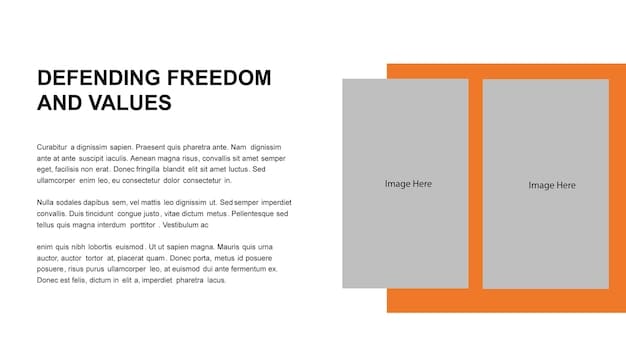Protecting Your Startup: Co-founder Intellectual Property Essentials

Co-founder intellectual property is critical for startup survival, requiring clear agreements and strategies to protect innovations and ensure equitable ownership among founders from day one.
Starting a company with co-founders is an exciting venture, but it’s crucial to address the often-overlooked aspect of co-founder intellectual property from the very beginning. Ignoring this can lead to disputes, legal battles, and even the downfall of your startup. This guide will help you navigate the complexities of co-founder IP, ensuring your startup’s assets are protected.
Why Co-founder Intellectual Property Matters
Intellectual property (IP) is the lifeblood of many startups. It includes patents, trademarks, copyrights, and trade secrets. When multiple founders are involved, it’s essential to define who owns what and how the IP will be managed. Failing to do so can create significant problems down the line. It’s not just about who had the original idea; it’s about defining the terms of ownership and usage for everyone involved.
Potential Conflicts
Without a clear agreement, disputes can arise over who owns which part of the IP. This can lead to lawsuits, strained relationships, and hinder the company’s ability to secure funding or be acquired. Imagine two co-founders disagreeing on whether a particular algorithm is a trade secret or whether it can be published. Such disagreements can halt product development and undermine investor confidence.
Attracting Investors
Investors want to see that the company’s IP is secure and well-managed. A clear agreement among co-founders demonstrates that the company has taken the necessary steps to protect its assets and minimize risk. When investors perform due diligence, they scrutinize IP ownership thoroughly. Unresolved IP issues can be a deal-breaker, causing them to withdraw their funding offer.
In summary, understanding the importance of co-founder intellectual property is the first step in protecting your startup’s future. Addressing these issues early on can save you time, money, and headaches in the long run. It establishes a foundation of trust and clarity that is vital for the success of any collaborative venture.

Key Elements of a Co-founder IP Agreement
A well-drafted co-founder IP agreement should cover several key elements to ensure clarity and protect the interests of all parties involved. This agreement serves as a roadmap for IP ownership, usage, and protection, minimizing the potential for future disputes. Such agreement is similar to a prenuptial agreement, you are better off having the talk when everyone is on amicable terms.
Ownership
Clearly define who owns what IP. This should include any IP created before the company was formed, as well as any IP created during the company’s operation. It’s crucial to specify whether the IP is jointly owned or solely owned by one founder. For example, if one founder developed a key technology before the startup was formed, the agreement should state how that technology will be treated.
Assignment
Ensure that all IP created by co-founders during their time with the company is assigned to the company. This prevents founders from leaving the company and taking valuable IP with them. The agreement should also state what happens to the IP if a founder leaves the company. A common clause is that all IP created during the founder’s tenure automatically becomes the property of the company.
Licensing
Specify how the IP can be used. Can it be licensed to third parties? Who has the authority to make these decisions? The agreement should cover both exclusive and non-exclusive licensing arrangements. Imagine a scenario where one founder wants to license a technology to a competitor without the other founders’ consent. The licensing terms should outline how such situations are handled.
- Scope of Work: Clearly define each co-founder’s roles and responsibilities.
- Confidentiality: Include clauses to protect trade secrets and confidential information.
- Dispute Resolution: Outline a process for resolving disputes related to IP ownership or usage.
- Amendments: Provide a mechanism for modifying the agreement as the company evolves.
In conclusion, a co-founder IP agreement is a critical document that should be carefully drafted and reviewed by legal counsel. It sets the foundation for how IP will be managed and protected, ensuring that the company’s valuable assets are secure.
Due Diligence Before Co-founding
Before you officially start a company with someone, performing due diligence is crucial. This involves researching their background, skills, and previous work to ensure they are the right fit. Think of it as an investigation to prevent potential problems down the line. It’s not just about verifying their credentials, but also understanding their ethical standards and professional reputation.
Background Checks
Conduct thorough background checks to verify their claims and identify any potential red flags. This includes checking their education, employment history, and any legal or financial issues. A background check can reveal if a potential co-founder has a history of IP disputes or conflicts of interest. Discovering such issues early on can save you significant trouble later.
Skills Assessment
Assess their skills and expertise to ensure they can contribute effectively to the company. This may involve reviewing their portfolio, conducting interviews, or even assigning a trial project. Understanding their capabilities helps you determine if they can fulfill their promised roles and contribute to the company’s IP development.
Previous Work
Examine their previous work to understand their track record and identify any potential IP issues. Have they been involved in any IP disputes in the past? Do they have a history of creating innovative solutions? Reviewing their past projects can provide insights into their approach to IP and innovation.

Thorough due diligence can uncover potential issues before they become major problems. Understanding your co-founder’s background, skills, and previous work can help you make an informed decision about whether to move forward. It also sets a foundation of trust and transparency that’s vital for long-term collaboration.
Protecting IP Created Before the Startup
It’s common for co-founders to bring existing intellectual property to the startup. This IP, created before the company’s formation, can be a valuable asset. However, it’s essential to address how this pre-existing IP will be treated to avoid future disputes. Being proactive ensures that everyone is on the same page and protects both the company and the individual founders.
Disclosure
Co-founders should disclose any IP they own that is relevant to the company. This includes patents, trademarks, copyrights, and trade secrets. Transparency is key to avoiding misunderstandings and potential legal issues. For instance, if a founder has a patent for a technology that the startup plans to use, it should be disclosed upfront.
Contribution Agreements
Enter into contribution agreements that specify how the pre-existing IP will be used by the company. Will it be exclusively licensed to the company? Will the founder retain ownership? These agreements should be in writing and reviewed by legal counsel. A contribution agreement might grant the startup exclusive rights to use a founder’s pre-existing technology in exchange for equity or royalties.
Valuation
Determine the value of the pre-existing IP. This can be done through an independent valuation or by mutual agreement among the co-founders. The valuation will help determine the equity stake or compensation a founder receives for contributing the IP. Understanding the value of each contribution ensures fairness and prevents later disagreements.
Properly addressing pre-existing IP is crucial for protecting both the company and the individual founders. Clear disclosure, contribution agreements, and valuation are essential steps. These measures ensure that everyone knows where they stand and what their rights and obligations are.
Formalizing the Agreement
While verbal agreements and handshakes might seem sufficient in the early days, formalizing the co-founder IP agreement in writing is essential. A written agreement provides clarity, certainty, and legal protection for all parties involved. Think of it as a safeguard against future disagreements and misunderstandings. It’s a document that can be referred to if issues arise.
Legal Counsel
Engage legal counsel to draft and review the agreement. An experienced attorney can help you identify potential issues and ensure the agreement is legally sound. Legal counsel can also advise on the specific terms and conditions that are most appropriate for your situation. They bring expertise in IP law and contract negotiation, which is invaluable in this process.
Clarity and Specificity
Ensure the agreement is clear, specific, and unambiguous. Avoid vague language or terms that could be open to interpretation. The agreement should clearly state the rights, obligations, and responsibilities of each co-founder. Ambiguity can lead to disputes, so precision is key.
Regular Review
Review the agreement regularly to ensure it still meets the needs of the company. As the company evolves, the IP landscape may change, and the agreement may need to be updated. Regular review ensures the agreement remains relevant and effective.
- Record Keeping: Maintain accurate records of all IP created and owned by the company.
- Compliance: Ensure all co-founders understand and comply with the agreement.
- Enforcement: Be prepared to enforce the agreement if necessary.
- Communication: Foster open communication among co-founders to address any IP-related concerns.
Formalizing the agreement is a critical step in protecting your startup’s IP. Engaging legal counsel, ensuring clarity and specificity, and reviewing the agreement regularly can help you avoid disputes and maintain a strong foundation for your company. It’s an investment in your company’s future that pays dividends in terms of stability and security.
Enforcement and Dispute Resolution
Even with a well-drafted agreement, disputes can still arise. Having a clear process for resolving these disputes is essential. This process should be fair, efficient, and cost-effective. Think of it as a contingency plan for when things go wrong. It’s about having a mechanism to address disagreements without resorting to lengthy and expensive litigation.
Mediation
Consider including a mediation clause in the agreement. Mediation involves a neutral third party who helps the co-founders reach a mutually agreeable solution. It’s a less adversarial approach than litigation and can often lead to quicker and more satisfactory outcomes. A mediator can facilitate communication and help the founders find common ground. An outside perspective can bring creative problem solving to the table.
Arbitration
Arbitration is another alternative to litigation. It involves a neutral arbitrator who hears both sides of the dispute and makes a binding decision. While more formal than mediation, it is still generally faster and less expensive than going to court. The arbitrator’s decision is legally enforceable, providing a clear resolution to the dispute.
Litigation
Litigation should be a last resort. It can be costly, time-consuming, and damaging to the co-founders’ relationship. However, if mediation and arbitration fail, litigation may be necessary to protect the company’s IP rights. Preparation of the case is important and all documentation should be in order.
Having a clear enforcement and dispute resolution process can help you protect your startup’s IP rights. Mediation, arbitration, and litigation are all options to consider. The key is to have a process in place that is fair, efficient, and effective in resolving disputes. This helps safeguard your company’s intellectual assets and minimizes disruptions to your business operations.
| Key Point | Brief Description |
|---|---|
| 🛡️ IP Agreement | Formalize IP ownership and usage among co-founders. |
| 🔎 Due Diligence | Thoroughly check co-founders’ backgrounds and skills. |
| 📜 Contribution | Specify how pre-existing IP will be used by the company. |
| 🤝 Dispute Resolution | Establish a process for resolving IP-related disagreements. |
Frequently Asked Questions (FAQ)
▼
IP includes patents, trademarks, copyrights, and trade secrets. It represents the unique creations and innovations of the company, which can be legally protected to prevent others from using or profiting from them.
▼
It helps to clearly define who owns what IP, preventing disputes and legal battles down the line. This agreement also assures investors that the company has a plan to manage and protect Intellectual Property.
▼
It should include ownership details, specifics about pre-existing and future IP contributions, assignment clauses to company ownership, licensing terms (exclusive or non-exclusive), confidentiality, and dispute resolution processes.
▼
Co-founders should disclose any relevant pre-existing IP and enter into contribution agreements that specify how that IP will be used by the company. Valuations can help determine the equity stake or compensation the founder will receive.
▼
Options include mediation, where a neutral third party helps co-founders reach a mutually agreeable solution, arbitration, where a neutral arbitrator makes a binding decision, or litigation as a last resort.
Conclusion
Protecting your startup’s co-founder intellectual property from day one is an essential step toward building a successful and sustainable enterprise. By following these guidelines, you can mitigate potential conflicts, attract investors, and ensure long-term growth.





